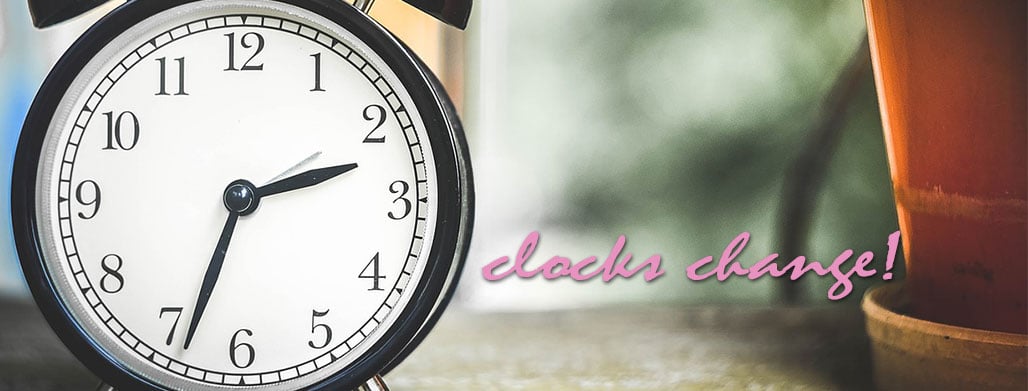
The Circadian Rhythm: What is it and how does it affect us?
Have you ever wondered how your body knows when it should feel tired and when it should feel more awake? Between closing our eyes in the evening and waking to your alarm in the morning, it's easy to assume that we have total control over our own sleeping patterns.
However, while we do make small day-to-day decisions about our rest, we all have a system hardcoded into our DNA that has the final say: our circadian rhythm.
But what is this, and how does it actually affect our sleep?
In this blog post, we aim to take a deeper dive into the subject and explore how the circadian rhythm has a major influence over how and when we sleep.
What is the circadian rhythm?
To put it into simple terms, the circadian rhythm is your internal clock that governs when your brain decides when you are sleepy and when you are alert.
A circadian cycle lasts roughly 24 hours, which is the reason why you generally feel more awake or tired at the same times each day. Typically, an adult will feel dips in their energy through the night (around 2am–4am) and just after lunch (12pm–3pm), though these will be minimised if you've fully caught up on your sleep, and more noticeable if you're not getting enough.
How does the circadian rhythm work?
A certain part of your brain — known as the hypothalamus — controls your circadian rhythm. Within this almond-sized portion is the suprachiasmatic nucleus (SCN), located right above the optic nerve, where it reacts to certain stimuli, such as different levels of brightness.
When the dark is perceived by your eyes, they send a signal to your SCN, letting it know it's time to feel tired and ready for sleep. In response, your brain releases melatonin, a hormone that creates the feeling of drowsiness. Conversely, boosts in alertness are provided by a release of the stress hormone cortisol when light is perceived.
It's also worth mentioning that this process is not only reliant on vision, as individual cells throughout your body have biological clocks that are kept in time by the SCN, ensuring everything runs in sync.
In the average day, your circadian rhythm will run like this:
- 6am–9am: The body starts to ready itself for the day.
- 9am–12pm: The brain reaches peak alertness thanks to a boost of cortisol.
- 12pm–3pm: Post-lunch drowsiness caused by food being digested.
- 3pm–6pm: The body is at its most ready for strenuous activities.
- 6pm–9pm: The body processes food, resulting in higher temperature and blood pressure.
- 9pm–12am: The brain signals for sleep via production of melatonin.
- 12am–3am: Body shuts down for sleep.
- 3am–6am: Body is asleep, but melatonin production slows as dawn approaches.
How does the circadian rhythm relate to sleep?

As you can see, the circadian rhythm and your sleep pattern are so closely intertwined that they are inseparable. And, because they are both so reliant upon one another, if any disruptions affect your sleep or your body clock, it can have a knock-on effect.
For instance, this is very obvious when you travel across the world and time zones. You are aware it is a different time, so you delay or hasten your sleep, but your circadian rhythm is still tied to your regular cycle at home, so you experience an untimely tiredness or wakefulness known as jetlag.
This can also happen when you start working a night shift and need to adjust to a completely new sleeping schedule — see our tips on managing night shift sleep if this is something you deal with.
There are also thought to be long-term health problems that can arise if your circadian rhythm is disrupted for too long, such as obesity, diabetes, depression, and dementia.
Can anything be done to strengthen the circadian rhythm?
If your circadian rhythm is disrupted, there is a way to get it back on track and going from strength-to-strength. The most effective way of doing this is to stick to a regular sleep schedule where you rest and wake up at the same time each morning and night (including weekends).
You can back this up further by partaking in certain activities that will reinforce waking and sleeping in your brain. This could be going for a run in the morning or taking a bath before heading to bed, both of which will get you into the routine of winding up or down.
Getting even more exposure to natural light than usual has also been found to aid a resetting of the circadian rhythm, especially when you're trying to get your body clock in sync again. Taking long walks outside or going camping are two effective ways of doing this.
Hopefully this blog post has shed some new light on the circadian rhythm and how it plays a major part in your life. If you have any questions, then be sure to get in touch with our sleep experts, or head to our blog and advice centre for more information.








Leave a Reply